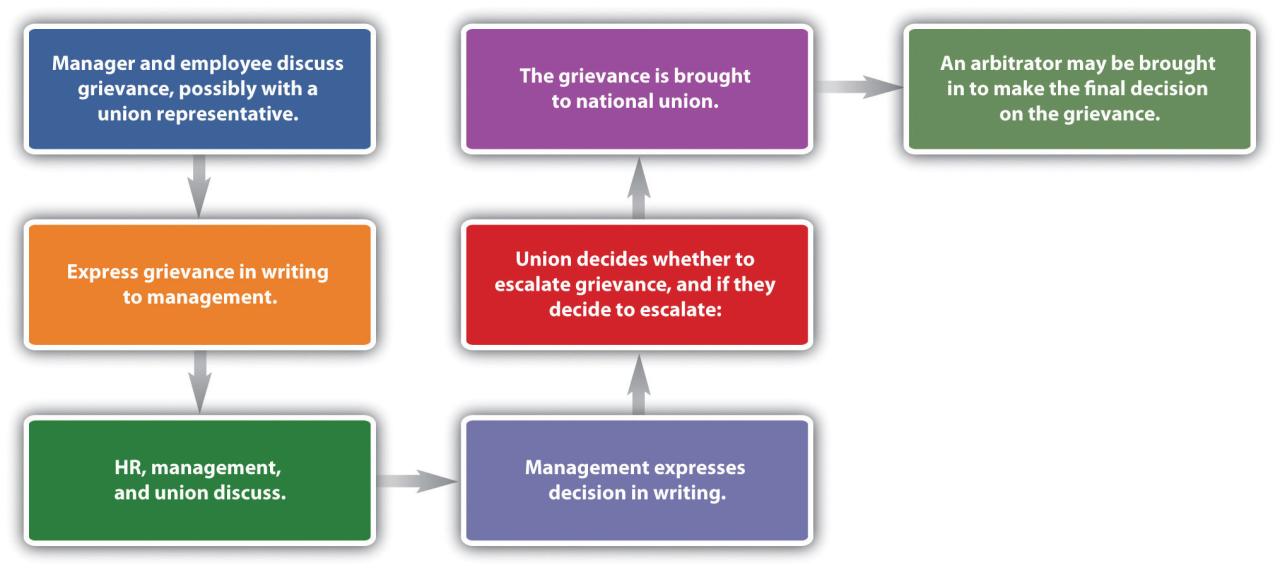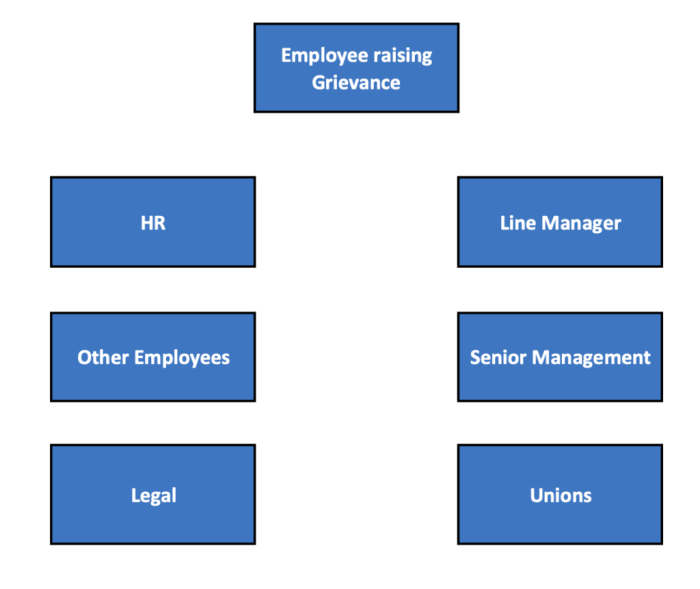An HR manager listens to and records an employee grievance. This seemingly straightforward task requires a multifaceted approach that involves active listening, thorough documentation, and skillful resolution. Understanding the grievance procedure, the significance of active listening, and the importance of proper documentation is paramount for HR professionals to effectively handle employee grievances and maintain a harmonious work environment.
This comprehensive guide will delve into the intricacies of grievance handling, providing HR managers with the knowledge and tools they need to navigate this critical aspect of human resource management.
Grievance Procedure

A grievance procedure is a formal process that employees can use to address complaints or concerns about their workplace.
The grievance procedure typically involves the following steps:
- The employee files a grievance with their supervisor.
- The supervisor investigates the grievance and attempts to resolve it.
- If the supervisor is unable to resolve the grievance, it is escalated to the next level of management.
- The grievance is eventually resolved at the highest level of management or through an independent arbitrator.
Common grievances include:
- Unfair treatment
- Discrimination
- Harassment
- Safety concerns
- Wage and hour disputes
The HR manager plays an important role in the grievance process. They can help employees to file grievances, investigate grievances, and facilitate resolution.
Active Listening: An Hr Manager Listens To And Records An Employee Grievance.
Active listening is a key skill for HR managers who are involved in the grievance process.
Active listening involves:
- Paying attention to what the employee is saying
- Understanding the employee’s perspective
- Reflecting back what the employee has said to ensure understanding
- Asking clarifying questions
Active listening can help to resolve grievances by:
- Building trust between the HR manager and the employee
- Helping the HR manager to understand the employee’s concerns
- Identifying potential solutions to the grievance
Documentation

It is important to document grievances thoroughly.
The documentation should include:
- The date the grievance was filed
- The name of the employee filing the grievance
- The nature of the grievance
- The steps that have been taken to resolve the grievance
- The outcome of the grievance
Effective grievance documentation can help to:
- Protect the employee and the employer
- Track the progress of the grievance
- Identify trends in grievances
Resolution

There are a variety of methods that can be used to resolve grievances.
The most common methods include:
- Informal resolution
- Formal resolution
- Mediation
- Arbitration
The HR manager can play a key role in facilitating resolution by:
- Helping the parties to identify potential solutions
- Mediating between the parties
- Facilitating the arbitration process
Successful grievance resolutions typically involve:
- A fair and equitable outcome for both the employee and the employer
- A resolution that is in accordance with the law
- A resolution that is reached in a timely manner
Follow-Up

It is important to follow up on grievances after they have been resolved.
Follow-up can help to:
- Ensure that the grievance has been resolved to the satisfaction of both parties
- Identify any potential problems that may arise in the future
- Build trust between the HR manager and the employees
There are a variety of methods that can be used to follow up on grievances.
The most common methods include:
- Contacting the employee to check on their satisfaction with the resolution
- Reviewing the grievance documentation to identify any potential problems
- Meeting with the employee and their supervisor to discuss the grievance and its resolution
Commonly Asked Questions
What are some common examples of employee grievances?
Examples include unfair treatment, discrimination, harassment, workload concerns, and compensation disputes.
What is the role of an HR manager in the grievance process?
HR managers facilitate the grievance process, ensuring fairness, confidentiality, and compliance with company policies and legal requirements.
How can active listening help resolve grievances?
Active listening allows HR managers to fully understand the employee’s perspective, identify underlying issues, and work towards mutually acceptable solutions.
What information should be included in grievance documentation?
Documentation should include the date, time, nature of the grievance, names of involved parties, and any relevant evidence or witness statements.
What are some methods of resolving grievances?
Methods include informal discussions, mediation, arbitration, and, in some cases, legal action.